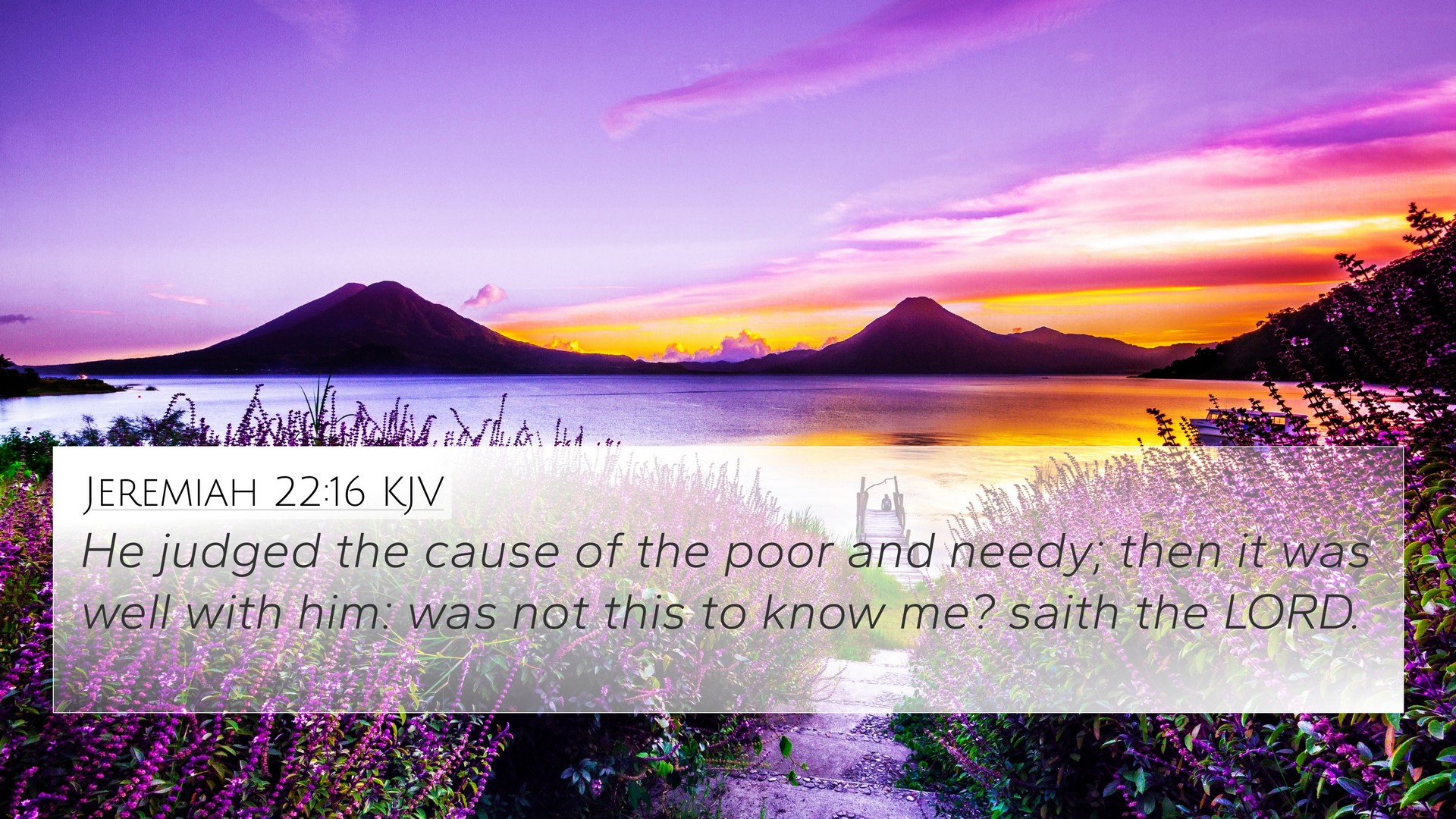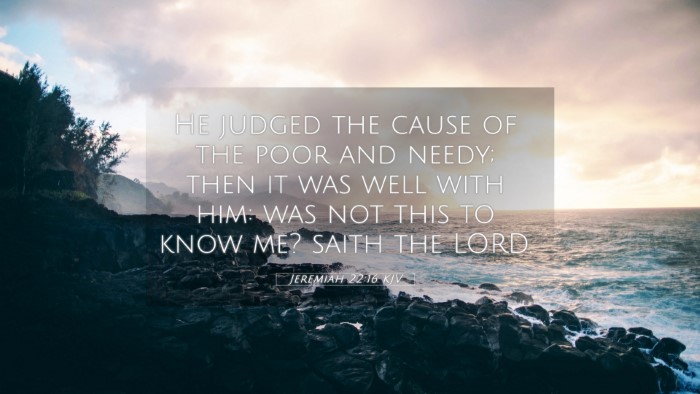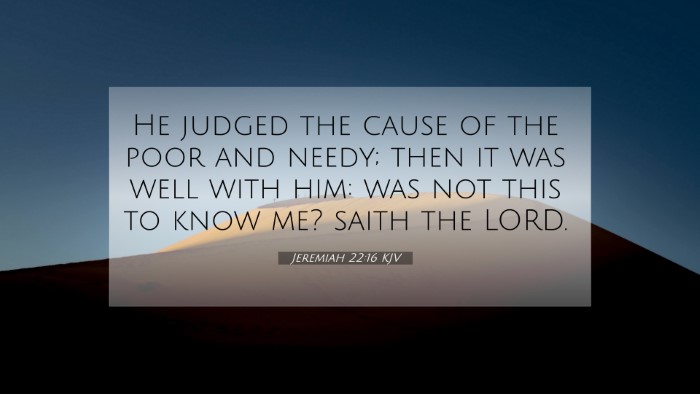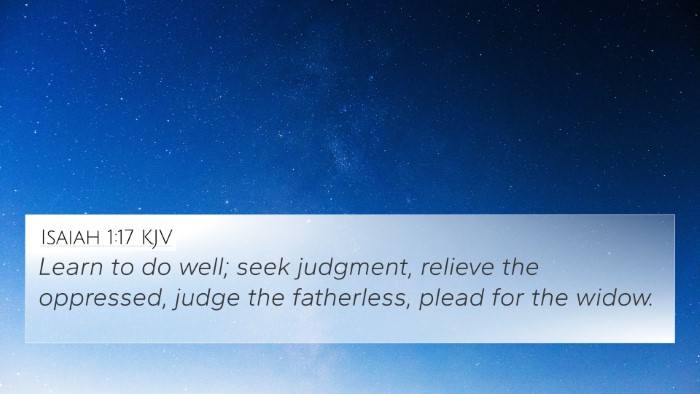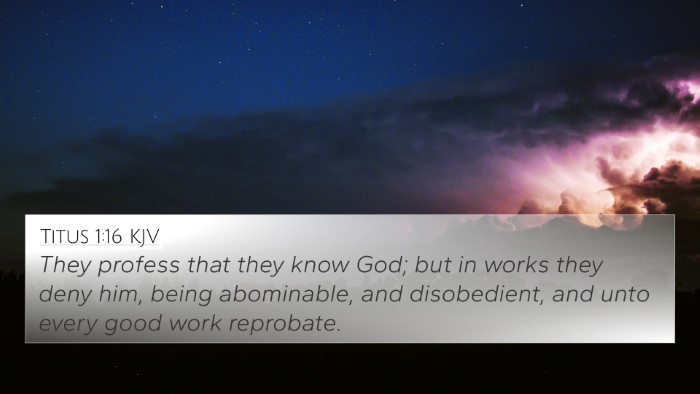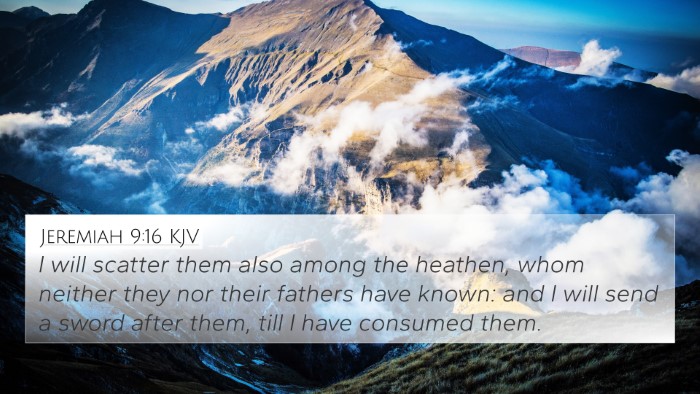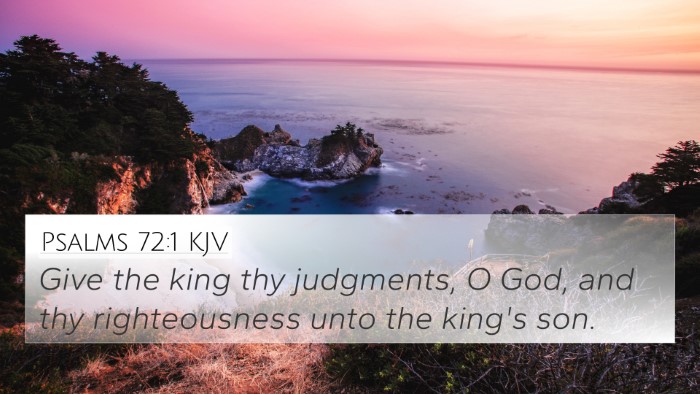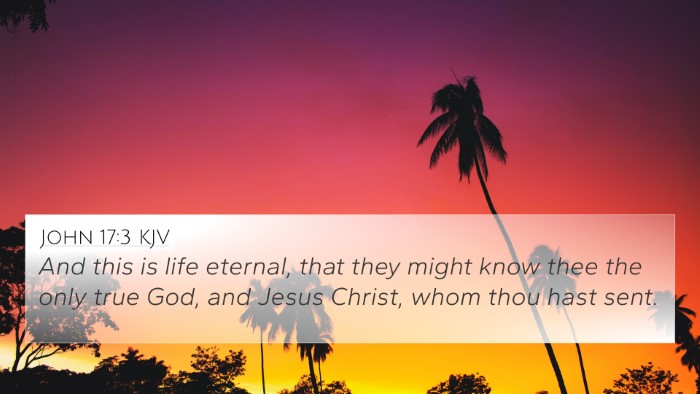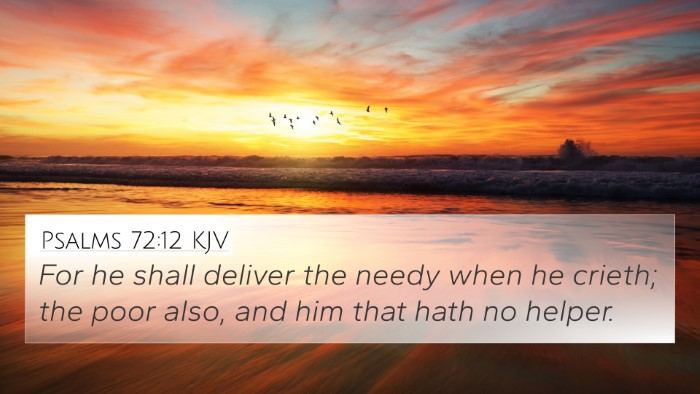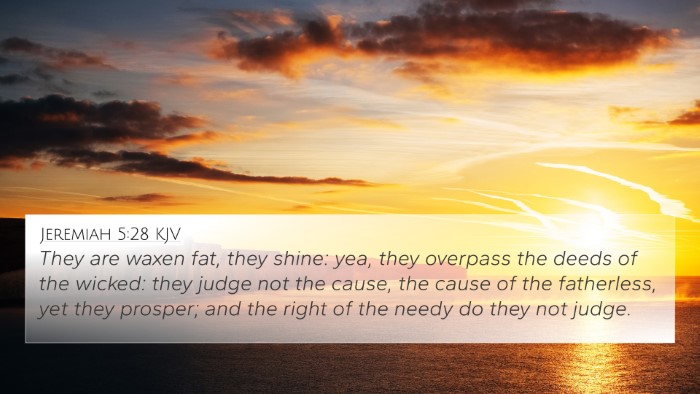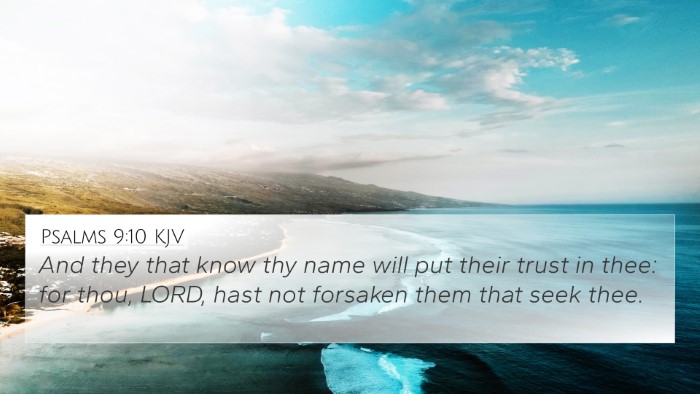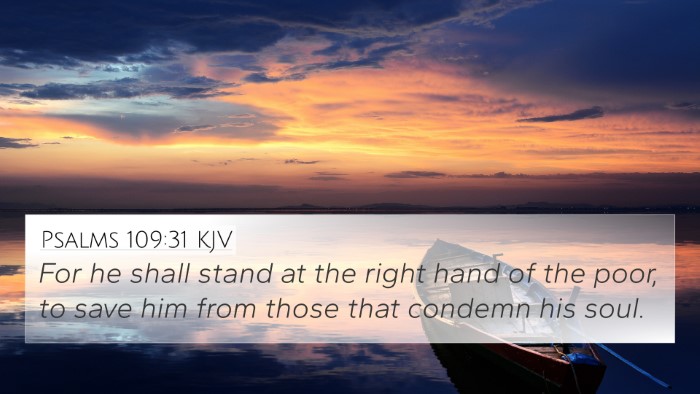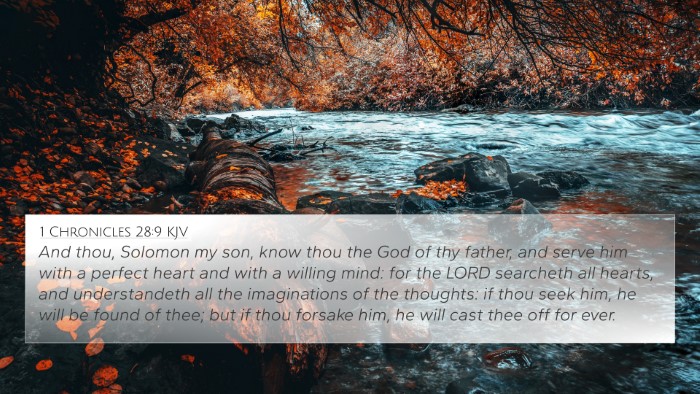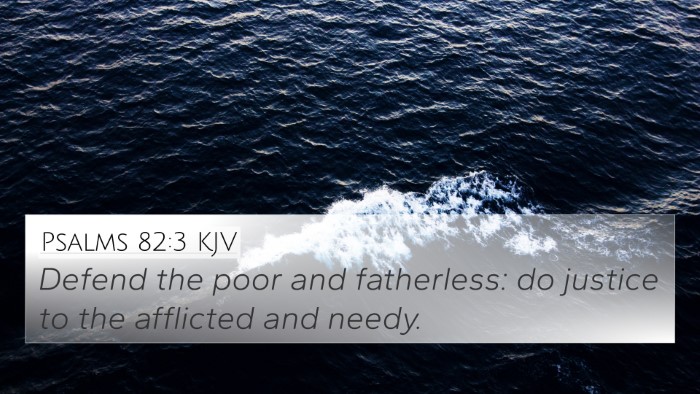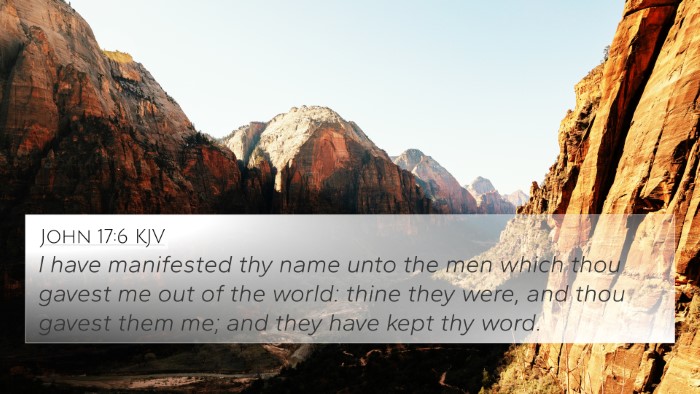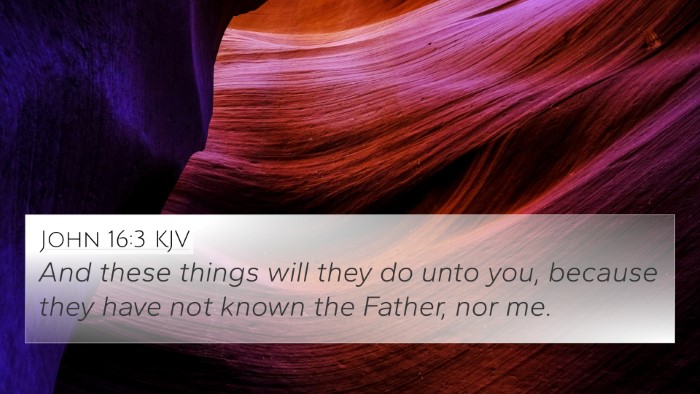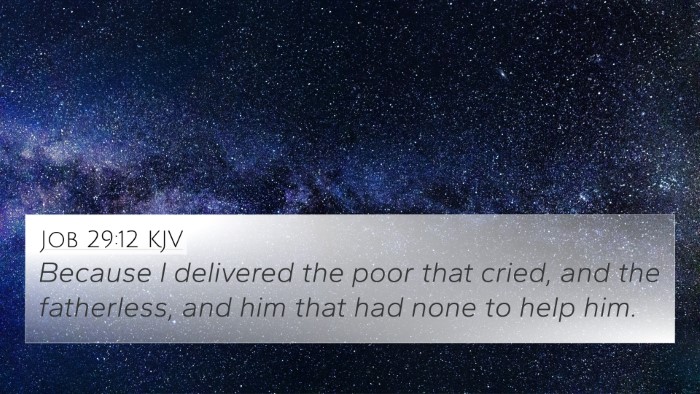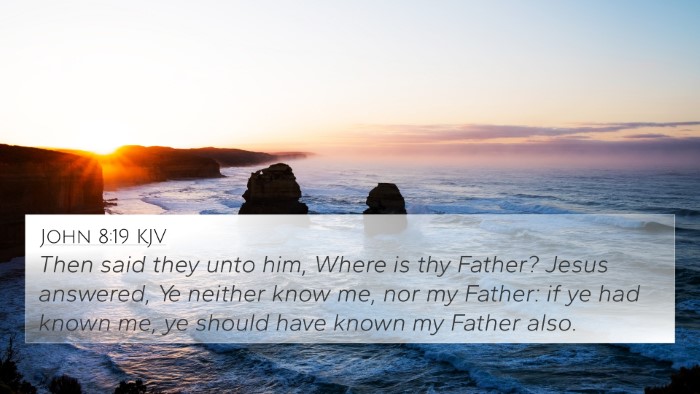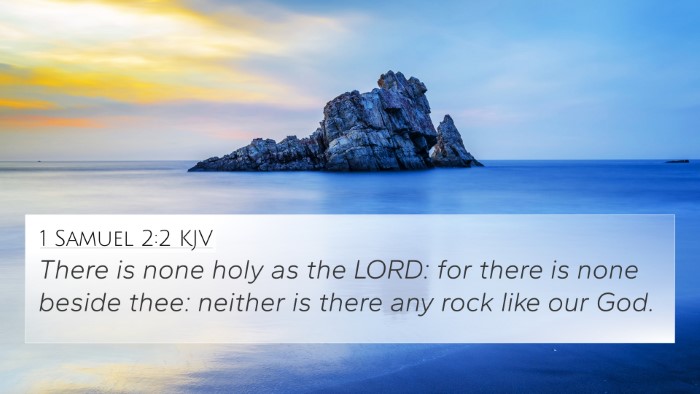Understanding Jeremiah 22:16
Jeremiah 22:16 states, "He judged the cause of the poor and needy; then it was well with him: was not this to know me? saith the LORD."
This verse highlights the importance of justice, compassion, and the intrinsic connection between knowing God and caring for the marginalized in society. By examining this verse through the lens of various public domain commentaries, we gain valuable insights into its meaning and implications.
Summary of Commentaries
The following insights, extracted from notable public domain commentaries by Matthew Henry, Albert Barnes, and Adam Clarke, explore the implications of Jeremiah 22:16.
Matthew Henry's Commentary
Matthew Henry emphasizes the moral obligation of those in leadership to act justly. He notes that true knowledge of God is demonstrated through actions that support the poor and needy. His commentary suggests that the welfare of the community reflects the leader's understanding of righteousness, indicating that God blesses those who align their actions with His principles.
Albert Barnes' Notes
Albert Barnes highlights the connection between social justice and divine favor. He carefully explains that knowing God involves not just intellectual assent but heartfelt engagement in caring for others. According to Barnes, the actions of a ruler are indicative of their relationship with God, aligning with the biblical notion that God desires justice and mercy over ritualistic worship.
Adam Clarke's Commentary
Adam Clarke addresses the broader social implications of the verse, stressing that the acknowledgment of the needy reveals one’s character and fidelity to God. Clarke posits that judging the cause of the poor signifies a deep understanding of God’s will, demonstrating that ethical behavior rooted in faith is paramount for true fellowship with God.
Connections to Other Bible Verses
Jeremiah 22:16 has several cross-references that complement its message and expand on the themes of justice, mercy, and the knowledge of God. Below are key Bible verses that relate to this passage:
- Proverbs 31:8-9: "Open your mouth for the mute, for the rights of all who are destitute." This passage communicates the call to advocate for the voiceless and needy.
- Isaiah 1:17: "Learn to do good; seek justice, correct oppression; bring justice to the fatherless, plead the widow's cause." This verse directly parallels the call for social justice found in Jeremiah 22:16.
- Micah 6:8: "He has told you, O man, what is good; and what does the Lord require of you but to do justice, and to love kindness and to walk humbly with your God?" It emphasizes justice as a fundamental requirement of God.
- Zecariah 7:9-10: "Thus says the Lord of hosts, Render true judgments, show kindness and mercy to one another; do not oppress the widow, the fatherless, the sojourner, or the poor." This verse aligns closely with the calling articulated in Jeremiah.
- Matthew 25:40: "And the King will answer them, 'Truly, I say to you, as you did it to one of the least of these my brothers, you did it to me.'" Here, Jesus affirms that caring for the needy is equivalent to serving Him.
- Lamentations 3:34-36: "To crush underfoot all the prisoners of the earth, to deny a man justice in the presence of the Most High." This underscores the seriousness of injustice before God.
- James 1:27: "Religion that is pure and undefiled before God, the Father, is this: to visit orphans and widows in their affliction." This New Testament verse reflects the same themes of compassion and justice outlined in Jeremiah.
Thematic Bible Verse Connections
The verse in Jeremiah invites a deeper analysis not only of prophetical texts but also of the Gospels and the epistles. Themes of social justice, mercy, and the character of God are woven throughout Scripture, creating a profound tapestry of inter-Biblical dialogue.
Understanding these connections can significantly enhance one's study and interpretation of the Scriptures. By employing tools for cross-referencing Bible verses, such as a Bible concordance and a cross-reference guide, readers can uncover thematic Bible verse connections and apply them to their lives.
Cross-Referencing Methods
1. Identifying Related Verses: When studying a specific verse, such as Jeremiah 22:16, look for related themes and principles in other scriptures.
2. Utilizing Bible Reference Resources: Use resources like Bible chain references to trace interconnected thoughts throughout scripture.
3. Engaging in Comparative Studies: Compare verses across both the Old and New Testaments to see how the message of justice and mercy is reinforced.
4. Incorporating a Holistic Approach: Consider the cultural and historical context of the verses to grasp their full meaning.
Conclusion
Jeremiah 22:16 serves as a compelling reminder of God's heart for justice and the importance of our actions towards others as reflective of our knowledge of Him. By engaging with this verse and its connections to other scriptures, individuals can deepen their understanding of Biblical principles surrounding justice, mercy, and the embodiment of faith. The practice of cross-referencing Bible verses not only enhances personal study but also equips believers to embody their faith in actionable ways, nurturing a community that reflects the love of Christ.
